50 Ways You're Sabotaging Your Finances

50 Ways You're Sabotaging Your Finances
Be careful -- or you could cost yourself a lot of money
It can be hard to get in good financial shape and to stay there, as most of us are not earning way more than we need to live on. To make matters worse, many of us are making some big blunders routinely, often without even realizing it.
Those blunders can hold us back from making progress toward our goals, such as a fully stocked retirement war chest. Here's a look at lots of mistakes many people make. See how many of them you have been making or might make in the future -- and how much you might save by avoiding them. Not making just a handful of these bad moves can leave you with tens of thousands more dollars -- or more.
Previous
Next

1. Not asking for a raise
This is one of the easiest ways to beef up your income: Simply ask for a raise. According to one report, roughly 70% of those who ask for one get it. Of course, it does help to be well positioned to get a raise. For example, you want to actually deserve it, through the hard work and great results that are apparent to many. You also want to clearly and calmly make a good case for a raise. It's smart to do your research first, perhaps via sources such as salary.com, glassdoor.com, salaryexpert.com, indeed.com, and the Department of Labor's Occupational Outlook Handbook.
Previous
Next

2. Not having an emergency fund
If you don't have a well-stocked emergency fund, you're very likely putting your financial well-being at great risk. Fully 44% of Americans didn't have ready funds to cover an unexpected $400 expense and would have to resort to borrowing money or selling something, according to a Federal Reserve report -- and you don't want to be one of them, just one financial emergency away from a major crisis. We all need to have a plan for how we'll get by if we lose our job or face a costly health issue or suddenly have to pay $1,700 to fix our car. You don't want to have to drain a retirement account for that or, worse, charge it all on a credit card, so stock an emergency fund with three to nine months' worth of living expenses.
Previous
Next

3. Not asking for lower interest rates on your credit cards
While some items on your financial to-do list may be onerous and take a long time, some can be quick and easy. For example, if you're carrying credit card debt and are being charged a hefty interest rate on it, you can simply call your credit card issuers and ask for a lower interest rate. Per some reports, that has worked a majority of the time. If you're wondering what a too-high interest rate is, know that the average rate recently topped 17%, so many people are paying even more than that -- and some are even paying more than 25%!
Previous
Next

4. Not asking that your credit card's annual fee be waived
While you're on the phone with your credit card issuers, there's another request you can make of them: Waive your annual fee. Again, many of those who ask get their fee waived. If you're thinking that it's dumb to have a card that charges an annual fee, that can certainly seem to be the case, but it's not always true. Yes, there are gobs of good cards with no annual fee, but even a $450 annual fee can be worth it if you're receiving more than that in value from your card.
ALSO READ: How to Avoid an Annual Fee by Downgrading Your Credit Card
Previous
Next

5. Delaying starting to save and invest
It's natural to put things off -- especially things we're not eager to do, such as socking away dollars for our future, when we'd rather spend those dollars on something fun. But when it comes to saving and investing for your future, every year you delay is a year in which your money isn't growing for you -- and that can cost you tens or even hundreds of thousands of dollars. Check out the table below, and notice the difference between your savings from one year to another:
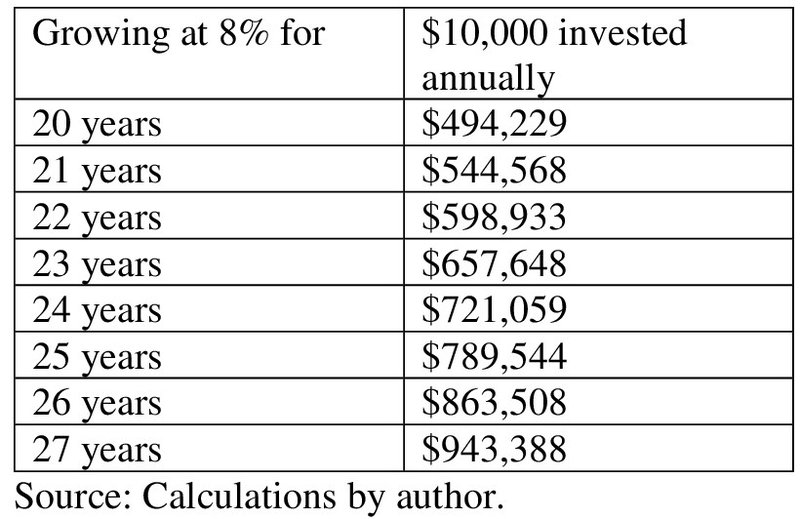
The table shows you that if you put off saving and investing for two years and end up giving your money only 22 years in which to grow instead of 24 years, it can cost you around $122,000!
Previous
Next

6. Not saving and investing enough each year
Another mistake when it comes to saving and investing is not socking away enough every year. Check out the table below, which shows how much you might amass over various periods if you regularly save and invest $5,000, $10,000, or $15,000. The differences are quite large:

Take some time to figure out how much you want to amass over time, and how much you'll need to sock away to get there. Obviously if you're starting late, you'll need to be saving more aggressively than if you're 35 years old with at least 25 years for your money to grow.
Previous
Next

7. Not having a retirement plan
For the most secure retirement, you need to know how much money you'll need in retirement and once you've arrived at that sum, you need to figure out how you'll get to it. Too many people leave their retirements to chance, saving and investing something and just hoping that it will be enough. That's a recipe for disaster.
Take the time to figure out what expenses you expect in retirement and what income streams you anticipate then, too, such as Social Security, dividend income, interest income, annuity income, pension income, rental property income, etc. See if they will be enough to support you comfortably or if you'll need to beef up any of them or come up with a new strategy. Set milestone goals for yourself, such as amassing $250,000 in savings by the time you're 45 -- or whatever ones make sense for you. It's also good to revisit your retirement plan every year to make sure you're still on track.
Previous
Next

8. Not consulting a financial advisor
Coming up with a sound retirement plan isn't rocket science, but it's not a simple matter, either, and if you do a poor job it can really hurt your future financial security. So if you're not comfortable and confident crunching numbers and planning, don't be afraid to tap the services of a financial advisor. There's no shame in that, and a good advisor may well save you more than he or she charges you. Ask around for recommendations, or look up local advisors at www.napfa.org, where you'll find advisors designated as fee-only, who won't be earning commissions from selling you products.
Previous
Next

9. Not having an estate plan
Each of us would do well to have an estate plan, no matter how average our income and net worth is. Your estate plan can protect whatever assets you have accumulated and make sure that they go to whomever you designate. It can help keep a family business running after you pass away. It can make sure children are cared for and can designate representatives to make healthcare decisions for you should you become incapacitated. It can also minimize taxes that your estate and your loved ones may face. Among the documents you should have prepared (no matter how young you may be) are a will, a durable power of attorney for finances, a living will, and a healthcare power of attorney (sometimes called a healthcare proxy). If you have a lot of assets, you might also look into setting up a trust. Keep your listed beneficiaries up to date for all your financial accounts, too.
Previous
Next

10. Not appreciating the destructive power of fees
You surely know that the lower fees you pay for various financial services and accounts, the better. But you may not appreciate just how destructive unnecessarily high fees can be. A Vanguard Group report ran the numbers for investors saving money over a 40-year period and paying different annual fees. The group paying the lowest fee, 0.25%, amassed about 24% more than those paying the highest fees, which were 1.25%.
Check out the table below, which shows how annual $10,000 contributions would grow at an annual average rate of 8% vs. 7% -- in other words, in two scenarios with a one-percentage-point difference in growth rates, which could be due to a one-percentage-point difference in fees:

One way to keep fees low is to favor index funds when you invest the money in your account, but even some index funds charge too much. If your S&P 500 index fund is charging you 0.70% or 1%, for example, know that many such funds charge 0.25% or 0.10%, or less.
Previous
Next

11. Staying in a job too long
If you love your job, you may want to stay with it for many years. If you want to earn as much money as possible, though, it might be best to only stay at a job for a few years, before moving on. Per the folks at chimebank.com, data from the Federal Reserve of Atlanta suggests that switching jobs is usually more lucrative than staying at your current employer. A Forbes article pointed out that a typical raise at a job you're staying at is in the low single digits, whereas by switching jobs, you will often end up earning 10% to 20% more -- if not even more than that.
Previous
Next

12. Racking up a lot of high-interest debt
Another massive financial mistake is getting deeply mired in high-interest-rate debt, such as via credit cards. In such a situation, instead of being able to save and invest and grow your net worth, you'll be forking over gobs of money for interest alone, while trying to pay down your debts. If you owe a not-uncommon sum of $25,000 and you're being charged a not-uncommon interest rate of 20%, you're looking at a hefty annual payment of around $5,000 just for interest! It's hard to get ahead in such situations.
Fortunately, debts can be paid off -- even seemingly huge ones.
ALSO READ: 3 Reasons You Should Start Paying Down Your (High-Interest) Debt Now
Previous
Next

13. Borrowing too much with student loans
Sometimes it's necessary to take on some debt in order to get through college. But be careful: It's easy for these debts to grow over time -- to levels that make life very hard. Some loans are even structured in ways that encourage strong debt growth -- such as by permitting long periods without repayment during which time the amount owed is growing by as much as 8% or more. Balances also grow when recent graduates can't make the necessary monthly payments on the salaries they're earning.
The majority of those who have taken student loans now regret the extent to which they're in debt, so proceed with caution. Perhaps go through college on a part-time basis, while working. Or make a stronger effort to get financial aid or scholarships.
Previous
Next
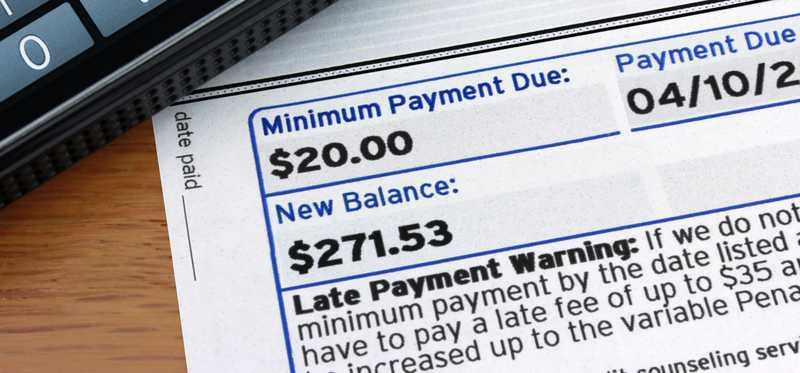
14. Making minimum payments on credit card debt
If you're deep in debt, it can be tempting to just make minimum payments. That's not a smart move, though, as it just drags things out longer and costs you much more in interest. Imagine, for example, that you owe $20,000 on a card that's charging you 20%, and you only make 4% minimum payments on it. It will take you more than 16 years to pay it off, and you'll be paying a total of more than $34,000! That means interest alone will cost you more than $6,000, which is more than you owed in the first place.
Your best move is never to get deep in debt in the first place. But if it happens, do whatever you need to do to pay it off as soon as possible. Know that many people have paid off debt loads of more than $100,000. One good strategy is to pay off your high-interest-rate debt first. Those credit card rates of 20% or higher are much more costly to you than a 5% mortgage or car loan.
Previous
Next

15. Not using the credit cards that will serve you best
There are a handful of very different categories of credit cards -- such as ones that offer cash back or rewards, ones that offer low interest rates and/or balance transfers, ones that offer travel perks, ones tied to particular retailers, and so on. Be sure that you're using the cards that serve your needs best. If you're in debt, for example, find the best balance transfer card for yourself or a good low-interest-rate card. If you're not in debt, consider cash-back cards or rewards cards. Think about where you do much of your spending, too. If it's often with one or two retailers, look for cards that give you discounts there. If you travel a lot, choose a good travel credit card.
Previous
Next

16. Not teaching your kids about money
There's a good chance that you wish you'd learned more about money and investing when you were young, so that you would have started saving and investing long ago. Well, don't let that happen to your kids or any children you care about. Teach your kids about money by sharing how you manage your own financial affairs. Let them see you paying bills and balancing checkbooks. Let them review credit card statements, learning what things cost. Let them help you find bargains by using coupons or looking for sales and discounts. Invest together, too, focusing on stocks that are of interest to them, such as perhaps Apple or Netflix or Starbucks.
Raising financially savvy kids will not only make their futures more secure, but it can also make your own financial future stronger, as your kids will be less likely to need financial support from you.
Previous
Next

17. Selling a stock for the wrong reason
When investing in the stock market, you not only have to learn enough to make good decisions regarding which stocks to buy and when to do so -- but you also have to make sensible decisions about when to sell stocks. (Of course, remember that you can always opt for maximum simplicity, just buying and holding shares of a low-fee, broad-market index fund, such as one based on the S&P 500.)
Don't sell any stocks you own for bad reasons, such as because of a rumor that may not be true, because it hasn't performed as expected over a very short period, or because the stock has fallen for what is likely a short-term reason. On the other hand, good reasons to consider selling a stock are because you need the money now or within a few years, because you no longer have faith in the company's future, or because it seems to be very overvalued.
Previous
Next

18. Getting out of stocks entirely when the market crashes
The stock market will crash every few years -- it always has. And it has always recovered, too, and gone on to hit new highs. But whenever it crashes, many naïve investors get scared, panic, and sell out of their stocks. Don't do that. Read up on investing enough to understand and expect volatility.
The best thing to do when the stock market crashes is actually to go shopping -- for more shares of stock. After all, that's when lots of great companies will have depressed share prices. Better still, stocks that have fallen in price will have dividend yields that have risen proportionately. Be a rational, not emotional, investor.
Previous
Next

19. Trading in and out of stocks too frequently
Whether you're trading stocks frequently or very frequently, you're probably doing yourself a disservice. A good way to build great wealth with stocks is to buy into strong and growing companies and then to hold on to those shares for years, if not decades, through ups and downs. Amazon.com's stock, for example, has risen in a jagged line over more than 20 years. In the past 20 years, it has averaged annual gains of 18.4%, enough to turn $10,000 into almost $300,000.
When you trade frequently, you don't give great stocks the time they need to grow powerfully, and you can be racking up trading commission costs, too, while ending up with your gains taxed at your ordinary income tax rate instead of the lower rate for long-term capital gains. According to an academic study of frequent traders by Brad Barber and Terrance Odean, between 1992 and 2006, fully 80% of active traders lost money and "only 1% of them could be called predictably profitable."
If you trade so frequently that you're a "day trader," then you're even more likely to lose money instead of making it. The Securities and Exchange Commission (SEC) has warned against day trading, saying: "Be prepared to suffer severe financial losses. Day traders typically suffer severe financial losses in their first months of trading, and many never graduate to profit-making status."
Previous
Next

20. Buying stock in companies you don't understand
Another investing blunder is buying into companies you really don't understand -- for example, you don't know exactly how they make their money. Many Enron investors got burned by this -- even stock analysts were flummoxed by the company's complicated structure. Solid, non-scandal-ridden companies can still be dangerous, though, if you don't really understand them --- because that means you won't have a good handle on what might go wrong, how competitively strong they are, and how rosy their prospects are. Biotechnology companies, for example, can be very hard to understand, if you're not a scientist. Retail companies and delivery companies and food companies are examples of easier-to-understand businesses.
ALSO READ: 3 Pieces of Warren Buffett Advice the Average American Needs to Hear
Previous
Next

21. Not shopping around for insurance regularly
You're probably leaving a lot of money on the table -- potentially several hundred dollars each year -- if you're not regularly shopping around for the best deals on insurance. You might have the best auto insurance policy you could get right now, but next year another company's policy-pricing algorithms might offer you a better deal.
This money-saving strategy just takes a few hours a year, and can pay off handsomely. Sit with your phone and call a host of insurance companies to get quotes for car insurance, home insurance, renters insurance, umbrella insurance -- and even health insurance.
Previous
Next
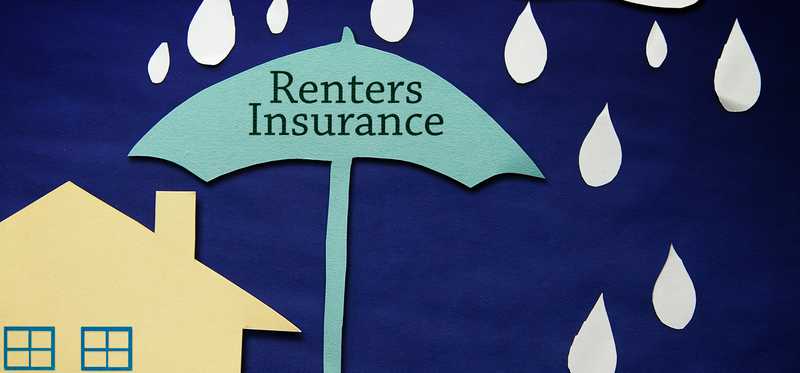
22. Not having renter's insurance if you rent your home
The case for buying renter's insurance if you rent your home is strong, but few people know it. Some 60% of renters don't have it, which means their possessions are all at risk. Know that your landlord isn't going to reimburse you if your television is stolen or if your computer is ruined by water damage. Some renter's insurance policies even pay toward hotel and meal expenses if you end up out of your home due to some covered event.
Renter's insurance is relatively inexpensive, too, recently averaging less than $200 per year. Call a few home insurers and see what they will charge you for renter's insurance.
Previous
Next

23. Living beyond your means
A big mistake you might be making that's sabotaging your financial future is if you're living beyond your means. Think about it: Do you spend all of every paycheck -- and then some? Are you in debt and is your balance growing instead of shrinking? Are you buying things you can't really afford?
The best money managers live below their means. They may not even have a budget, but they have money left over after each pay period, and their bank accounts and brokerage accounts are slowly (or not so slowly) growing. When they are faced with an unexpected expense, such as a car repair, they have the money. And when the time comes to retire, they're often in good shape then, too, thanks to having spent years living below their means.
Previous
Next

24. Going into debt for your wedding
Here's a scary statistic: Fully 74% of couples expect to go into debt paying for their wedding, per a studentloanhero.com survey. That's not surprising, given the recent average cost of a wedding -- $25,764 -- but going into debt is a terrible way to start a marriage. After all, debt means interest payments. Certified Financial Planner Byron Ellis has estimated that a couple borrowing $25,000 for a wedding may end up paying a total of $44,000 when all is said and done, thanks to interest payments.
Fortunately, there are lots of ways that you can save money on weddings, such as having it during an off-season or on a weeknight or a weekend afternoon. You might also opt for a buffet meal instead of a served meal, and you might have the reception at a public park or in your church's reception hall instead of at a swanky venue.
ALSO READ: Here's a Good Reason to Spend Less on Your Wedding
Previous
Next

25. Making big purchases that you'll regret
Make a few big purchases that you end up regretting and it can make a big dent in your future financial security. For example, if you spend $5,000 on the top trim package of your new car, only to find later that you never really use that sun roof and that the leather seats get too hot in the summer and too cold in the winter. If you couldn't resist a great sale price and replaced your still-good refrigerator with a fancy new one for $3,000, you might now be thinking that that $3,000 could have been put to better use.
Fight this problem by giving yourself some rules. Make yourself wait at least overnight, or ideally a few days before buying, to make sure you still want to buy. Try thinking about how much that money would grow to over 10 or 20 years. If you choose not to spend $3,000 and instead invest it for 20 years, with it growing at an average annual rate of 8%, it will end up worth about $14,000 -- a sum you'll likely find rather helpful in retirement. At the very least, you might end up talking yourself into a less costly purchase, such as a smaller TV or a less fancy car.
Previous
Next

26. Not seeking discounts or using coupon codes
As you go through your life, occasionally shopping, you're hurting your financial future if you're not seeking out discounts and using coupon or promo codes when shopping online. It can take just an extra few minutes to do an online search for the name of the retailer you're about to order from and the word "coupon" -- and that can take you to some codes that may offer free shipping, $10 off, or a 20% discount, among many possibilities. Some prominent coupon sites are retailmenot.com, coupons.com, and slickdeals.com. There are even some browser extensions -- such as Honey, Camelizer, or Cently -- you can use that will automatically alert you when there's a lower price to be found somewhere.
Previous
Next

27. Not having a budget -- and sticking to it
Budgets can seem very boring, but they can help you reach exciting goals. If you find that you're not able to save as much as you'd like for your future, make a budget and make saving a priority in it.
Approach the task like this: Figure out all your income sources and how much income you receive each month or so. Then make a list of all your monthly expenses, converting annual, biannual, or quarterly expenses such as car insurance or property taxes to monthly amounts. Be comprehensive, including everything from food and clothing to entertainment, transportation, utilities, gifts, travel, and so on. A review of credit card statements and bank statements can help you figure out where you dollars go. Finally, decide how much money you want to be allocating to various categories, such as retirement savings, and if your spending goals are higher than your income, find places to trim. Fortunately, there are lots of ways to spend less.
Previous
Next

28. Paying bills late
Here's a relatively simple way to improve your financial health: Pay your bills on time. If you don't do so, you run the risk of being slapped with penalty fees and hurting your credit score, too.
It can be especially dangerous to pay some credit card bills late, because some cards have a "penalty APR" feature, whereby they have the right to jack up your interest rate to very steep levels (such as 25% or even close to 30%!) if you commit just one infraction, such as paying a bill late. Many cards don't have this feature, so ideally, only sign up for ones that don't, or at least favor and only use ones that don't.
ALSO READ: 4 Ways You Can Have a Low Credit Score Despite Paying Your Bills on Time
Previous
Next
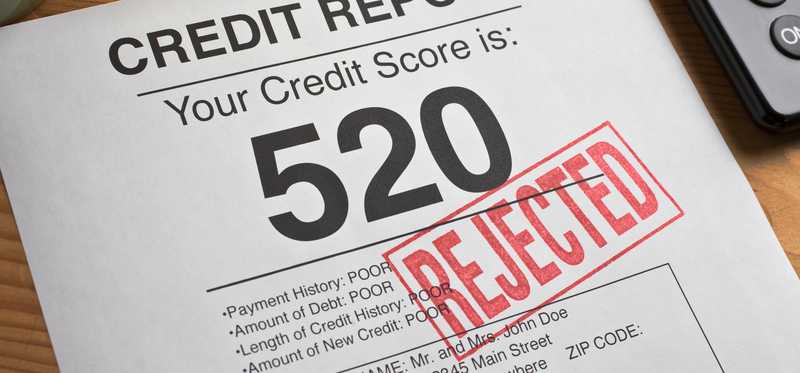
29. Not having or building a strong credit score
Speaking of credit scores, don't underestimate the power of a good credit score -- or a bad one -- when it comes time for you to borrow some money. Check out the table below, which shows what kind of difference a strong score can make. It reflects recent interest rates for someone borrowing $200,000 via a 30-year fixed-rate mortgage.

The good news is that there are a bunch of ways to increase your credit score.
Previous
Next

30. Maxing out your credit lines
If you've been maxing out your credit lines -- such as by borrowing as much as you can on each of your credit cards -- you're not only hurting yourself by accumulating a lot of costly debt, but you're also depressing your credit score. That's because about 30% of your credit score is tied to your "credit utilization" -- the amount of debt you have divided by the amount of total debt you could have. (For example, if all your credit lines total $25,000 and you've borrowed $20,000 against them, your utilization would be 80% -- $20,000 divided by $25,000.) Lenders and credit score developers like to see you with no more than about a 30% utilization rate.
Previous
Next

31. Buying more house than you can afford
When it comes to buying a home, a common mistake people make is buying more house than they can really afford. Mortgage lenders and real estate agents may even be directly or indirectly nudging you to do so, by approving you to buy a home with a steep maximum price or by showing you more costly homes than you should really be looking at.
Even if on paper it looks like you can get by buying, say, a $500,000 house, it may be much smarter to buy one that costs $400,000 or $450,000. That will leave you with a bigger margin of safety, or cushion, in case unexpected expenses crop up, or in case someone in your household is out of work for a while. Remember that a costlier home will likely also come with costlier property taxes, insurance, utility expenses, maintenance, and repairs. Remember that it's best to live below your means than to live above them.
Previous
Next
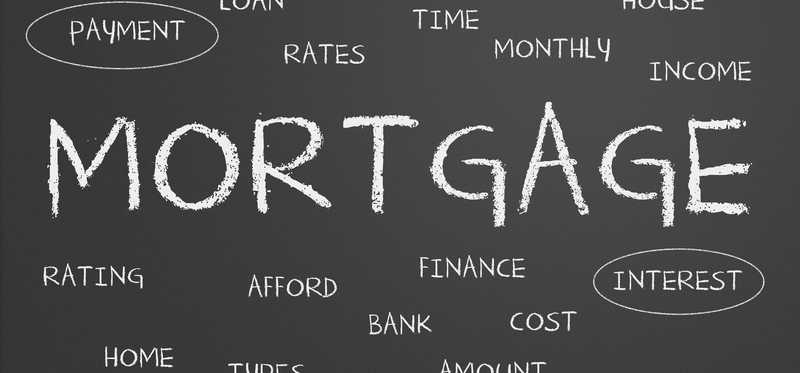
32. Getting the wrong kind of mortgage
Another home-buying blunder is getting a mortgage that isn't best suited to your needs. Remember that you can get a fixed-rate or adjustable-rate mortgage (ARM), and that you can get a loan that's set to last 15 years or 30 -- or even somewhere in between. If you know you're not going to be living in the home for more than, say, three to 10 years, you might opt for an ARM, as they tend to have lower interest rates. An ARM will offer a low introductory rate that will remain fixed for about three to seven years, generally, after which it will start being adjusted upward or downward every year, to more closely reflect prevailing rates.
If you are hoping to be in the home for decades, a fixed-rate mortgage will be your best bet, at least in a low interest-rate environment. If interest rates are high, give ARMs more consideration.
When it comes to the length of your loan, know that a 15-year mortgage will cost you much less in interest over the long run, but the monthly payments will be higher. Instead of committing yourself to higher payments, consider getting a 30-year loan (that has no prepayment penalty) and making extra payments against principal regularly. That will have the effect of shortening the life of the loan and shrinking your total interest paid. If you ever end up financially strapped, you can just make the regular, lower, payment.
Previous
Next

33. Not participating in your company's 401(k) plan
Fully 76% of those with a defined contribution plan such as a 401(k) plan report being confident they'll have enough money for a comfortable retirement, while only 46% of those with such a plan feel that way, according to the 2018 Retirement Confidence Survey. The lesson: If there's a 401(k) plan that you can participate in at your workplace, do it.
Your company may have automatically enrolled you in its plan, which is good, but if so, look into exactly how your money in being invested. By default, it may be in some too-conservative choices that won't grow very quickly, and that can really hurt the future of young employees in particular. The younger you are, the more you should have in the stock market as opposed to bonds and other "safer," slower-growing alternatives. You may also be auto-enrolled at a low contribution rate. Increase that as much as you can, within reason. For many young people, saving 10% of income is about right, while those with some catching up to do may want to aim for 15% or more.
Previous
Next
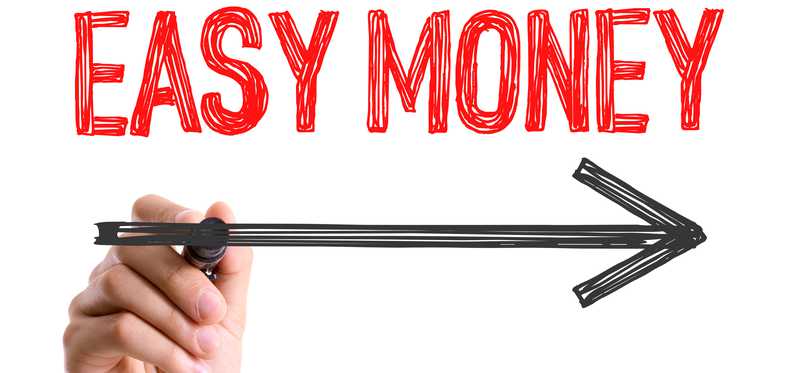
34. Not maxing out your employer's 401(k) match
Even if you don't want to make full use of a workplace 401(k), if your employer is offering any matching funds, as is typically done, be sure to at least contribute enough to get the maximum available matching funds. Why? Because it's free money. If your company will match contributions up to 6% of your salary, contribute 6% of your salary. Employers who match dollar-for-dollar are giving you a guaranteed 100% return on your money, something you'll be hard-pressed to find elsewhere. If they match 50% of your contributions, that's a guaranteed 50% return on your money. Even Netflix's average annual return over the past 15 years -- about 31% -- can't touch that.
Previous
Next

35. Borrowing from a 401(k)
If you're looking for some extra money, you may be tempted to borrow from the stash that has accumulated in your 401(k) account. That's not a good idea, though, unless it's an emergency and you really have no better option. That's because you'll be removing dollars that could be working and growing for you -- dollars that may never be repaid if you run into more trouble. (Not repaying a 401(k) loan can result in penalties and taxes, too.)
Imagine borrowing $15,000 from your 401(k) account and repaying it two years later. That might seem harmless enough, but if you were earning an annual average return of 8% on that money, the $15,000 would have grown to about $17,500 over two years. By borrowing, you'd be losing that $2,500 gain -- and what that gain would have grown to, over time.
Previous
Next

36. Cashing out a 401(k) account when you change jobs
Many people these days routinely cash out their 401(k) accounts when they change jobs. It can seem harmless enough, especially if you're only staying at each job for a few years and not accumulating a huge sum in any account. But each time you cash out, you're short-changing your retirement.
Imagine that your 401(k) has $25,000 in it. If it can keep growing for you for another 20 years (at an annual average of 8%), it would end up worth more than $116,000 -- a sum that would be rather handy in retirement. So instead of cashing out, consider rolling over funds in your 401(k) into an IRA, where fees might be lower and investment options broader. You might also roll it over into a 401(k) account with your new employer. Another option is to convert that money into an annuity that will pay regular sums monthly in retirement. Just be sure it's a fixed annuity and not a variable or indexed one, as those are more problematic.
Previous
Next

37. Falling for scams
A good way to sabotage your financial future is to fall for scams -- and there are gobs of different scams out there, and lots of con artists hoping to hoodwink you. They often need to persuade you to give them personal information such as your Social Security number, bank account number, credit card number, address, birthday, and so on, and they will use that to try to get your tax refund sent to them, or to start collecting your Social Security checks, or to get money from your bank account -- sometimes by convincing you to send it to them!
Other scams involve sales people trying to get you to invest in terrible "opportunities" that sound terrific but that will likely leave you high and dry. They can be penny stocks, for example, that you read about online, or they might be exciting companies about to strike gold or cure cancer that someone cold calls you to buy.
You can protect yourself by trusting your gut if anything seems a bit too good to be true and by not considering opportunities that come to you. Instead, seek out great investment ideas on your own.
Previous
Next

38. Getting a payday loan
If you're in need of a cash infusion, avoid payday loans at all costs -- because they are designed to cost a lot. Comparing annual percentage rates (APRs) can help you see how: A typical payday loan is meant to be paid back within a few weeks, whenever you're next paid, and according to the Consumer Financial Protection Bureau (CPFB), maximum fees vary by state but are generally between $10 to $30 per $100 borrowed. The CFPB notes that a two-week loan charging you $15 per $100 borrowed amounts to an APR of 400%! Compare that to credit cards, with APRs in the teens or up to about 30%.
Previous
Next

39. Not reviewing recurring expenses
Many of us have money leaking out of our bank accounts without our even noticing it -- via recurring expenses. Think, for example, of a gym you joined years ago that you no longer work out at. It may still be charging you $40 per month, costing you almost $500 per year. You might also have subscribed to some services or products that you no longer use, such as magazines, product protection or insurance plans for products you no longer own or use, and so on. Even your cable TV is a recurring expense that you might not really use much these days if you're mostly streaming your nightly videos. Go through your credit card statements carefully and look for recurring bills you don't need to pay any more. There's a good chance you'll find at least one.
Previous
Next

40. Not having enough insurance
This is a financial blunder you may not realize you've committed until it's too late: Having too little insurance. That might mean not having any coverage at all -- perhaps life insurance or health insurance -- or having too little coverage, such as with a home insurance policy. Being under-covered offers the benefit of lower premiums, but if your home burns down and you receive only 80% of the money you need to rebuild it, you'll be regretting not having enough coverage. Meanwhile, you might be in your 30s or 40s, thinking that life insurance isn't really necessary, but, sadly, young people do die sometimes, and if anyone is depending on you financially (your kids, your parents, a spouse), you should really be carrying life insurance. Similarly, you might be young and preferring not to pay for health insurance, but even young people sometimes end up with costly injuries or conditions.
ALSO READ: 10 Hard-to-Believe (and Interesting!) Insurance Facts
Previous
Next

41. Not taking on a side gig
Many of us are not where we want or need to be, financially speaking. You may be well short of what you expect to need for your kids' college educations, or deep in debt, or maybe your retirement coffers are woefully underfunded and you're hoping to retire in a few years. If so, or even if you'd simply like to aim for an extra-cushy retirement, consider taking on a side gig for a while. You might drive for Uber or Lyft on the weekends, or tutor kids in the evenings, or even wait tables now and then. Simply working an extra eight hours a week, if you earn, say, $12 per hour, can get you an extra $100 or so weekly, pretax, and about $5,000 more per year. If you can work more or earn more per hour, you'll do even better.
Previous
Next

42. Leasing a new car
Leasing your next car can seem like a good idea, but very often, it's not, at least from a financial perspective. There are indeed upsides to it: You'll generally be able to drive newer, possibly more expensive, cars than if you bought a car and kept it for a decade. If you plan to lease another car every time your lease is up, then you'll always be making car payments -- versus no longer doing so after your three- to five-year car loan is finished. Leasing can also result in surcharges if the car is deemed in not good-enough condition when returned or if you drive more than the number of miles you're allowed to. Overall, leasing tends to cost you more than just taking out a car loan to buy a car.
Leasing a car can make financial sense in some circumstances, such as if you own a business, will use the car mostly for work, and can deduct your car leasing payments. But for the average salaried worker, it's usually better to buy -- and to keep the car in good condition, aiming to drive it for many years.
Previous
Next

43. Buying a time share
Buying a time share can seem like an appealing proposition, but it's often a regrettable move, especially financially. For one thing, they can cost a lot -- several thousand dollars or many thousands of dollars -- and they tend to include recurring charges, too, such as annual fees, taxes, maintenance fees, and so on. They limit you to one location or locations in their network, and you may not always be able to stay where you want when you want. Time shares can be difficult to unload -- there's even an industry that has developed in order to help people exit from their time shares. (Note, too, that even if you sell your time share for a loss, you won't be able to deduct the loss. It's not treated as typical real estate.)
Consider putting the sum you're thinking of spending on a time share in a special vacation account, and spending that money to get comfortable hotel rooms or to rent nice accommodations in locations of your choosing. Those dollars might go a lot further that way.
Previous
Next

44. Not being on the same page, financially, with your spouse
If you and your spouse don't have a mutual understanding about the state of your finances, about your financial goals, and about how you're gong to reach them, one or both of you may end up quite unhappy. One spouse might be saving and investing diligently, but if the other is spending a lot and perhaps even racking up debts, then it will be hard for you both to get ahead. Two people working together can achieve more than one person can -- such as if you both take on side gigs for a while to generate more money to pay off debts or invest for retirement.
In many couples, one or both partners is keeping financial secrets, such as about spending, debt, or other matters. Talk frankly and honestly with each other, draw up goals and plans together, and make you dreams happen.
ALSO READ: Are You Financially Faithful? One-Third of Married Americans Aren't
Previous
Next

45. Engaging in shopping therapy
A common American way to deal with stress or with unhappy feelings is to go to the mall to shop. It's even earned a name -- "retail therapy." The folks at swap.com surveyed Americans in 2017 and found that the average American shelled out $1,652 per year -- "just to cheer themselves up." According to the survey, more than 22% of the typical Americans' shopping is for items that are not needed. Instead, many shoppers report that factors such as anxiety, boredom, and stress have them shopping for pleasure. This is a way to slow down any progress you're making toward goals such as an early retirement or even just a comfortable on-time retirement. If you find yourself out shopping, consider pausing before every purchase and asking yourself if it's really necessary or if it's simply to make you feel good for a few hours.
Previous
Next

46. Eating out too often
Are you eating out fairly frequently? If you're dining at restaurants twice a week and spending an average of $50 each time, that's $2,600 per year -- which might be more than you realized you were spending and more than you really should spend. No matter whether you eat out once a week or once a day, think about whether you want to reduce the frequency a bit (or a lot), in order to keep more dollars in your pocket.
You can often eat more healthful meals at home, too, not to mention less costly ones. By doing your own cooking you'll know just how much salt or fat or carbohydrates are in each meal.
Previous
Next

47. Cosigning a loan
Many people have damaged their finances by cosigning a loan for a friend or a relative. Even just sharing a credit card can be harmful, if one party racks up debt and/or doesn't pay the bills or pays bills late. Any such mismanagement of money will end up on the credit reports of all parties who own the account, and can lead to lower credit scores, among other things. You'll be responsible for the debt, too, if the other party isn't paying. Collection agencies can come after you and can make life miserable.
Before you mingle your finances with another, think about whether there's any other way to accomplish what you both want to accomplish. The other party may have some other options, such as a home equity loan or a secured credit card. Some co-signings may be less problematic, such as if it's just a car loan.
Previous
Next

48. Not being aware of what healthcare might cost in retirement
As you plan for your retirement and figure out how much money you need to save for it, be sure to incorporate healthcare costs, as they are likely to be very significant. The average amount that a retiring 65-year-old couple will pay out of pocket over the course of their retirement is $280,000, per Fidelity Investments -- and that's just an average, which doesn't even include long-term care costs.
You can prepare for this by saving and investing more, by making smart Medicare decisions, and by getting and staying healthy, in order to try to minimize how much healthcare you'll need in the future. There's no guarantee, but if you eat well and exercise, you might be able to stave off some costly conditions.
ALSO READ: Healthcare Costs Are Going Nowhere but Up -- and Workers Are Feeling the Pain
Previous
Next

49. Not reading and learning about money management
For best financial results in life, you'll want to be making smart decisions, and that will be easier if you've read and learned a lot about business, investing, and money management --- and if you keep reading and learning throughout your life. You can learn about the makings of great businesses by reading books about their origins and culture and you can gain lots of investing guidance by reading about great investors such as Warren Buffett.
Previous
Next

50. Assuming that Social Security will be enough
Finally, a big mistake many people make is assuming that their Social Security benefits will fully or largely support them in retirement. Here's a reality check: The average Social Security retirement benefit was recently $1,461 per month, or about $17,500 per year, while the maximum monthly benefit for those retiring at their full retirement age in 2019 is $2,861. (That's about $34,000 for the whole year.) Odds are, you'll want more income than that.
Fortunately, you probably have time to save and invest more money for retirement. And on top of that, there are also some ways to increase your Social Security benefits.
John Mackey, CEO of Whole Foods Market, an Amazon subsidiary, is a member of The Motley Fool’s board of directors. Selena Maranjian owns shares of Amazon, Apple, Netflix, and Starbucks. The Motley Fool owns shares of and recommends Amazon, Apple, Netflix, and Starbucks. The Motley Fool has the following options: long January 2020 $150 calls on Apple and short January 2020 $155 calls on Apple. The Motley Fool has a disclosure policy.
Previous
Next
Invest Smarter with The Motley Fool
Join Over Half a Million Premium Members Receiving…
- New Stock Picks Each Month
- Detailed Analysis of Companies
- Model Portfolios
- Live Streaming During Market Hours
- And Much More
READ MORE
HOW THE MOTLEY FOOL CAN HELP YOU
-
Premium Investing Guidance
Market beating stocks from our award-winning service
-
The Daily Upside Newsletter
Investment news and high-quality insights delivered straight to your inbox
-
Get Started Investing
You can do it. Successful investing in just a few steps
-
Win at Retirement
Secrets and strategies for the post-work life you want.
-
Find a Broker
Find the right brokerage account for you.
-
Listen to our Podcasts
Hear our experts take on stocks, the market, and how to invest.
Premium Investing Services
Invest better with The Motley Fool. Get stock recommendations, portfolio guidance, and more from The Motley Fool's premium services.